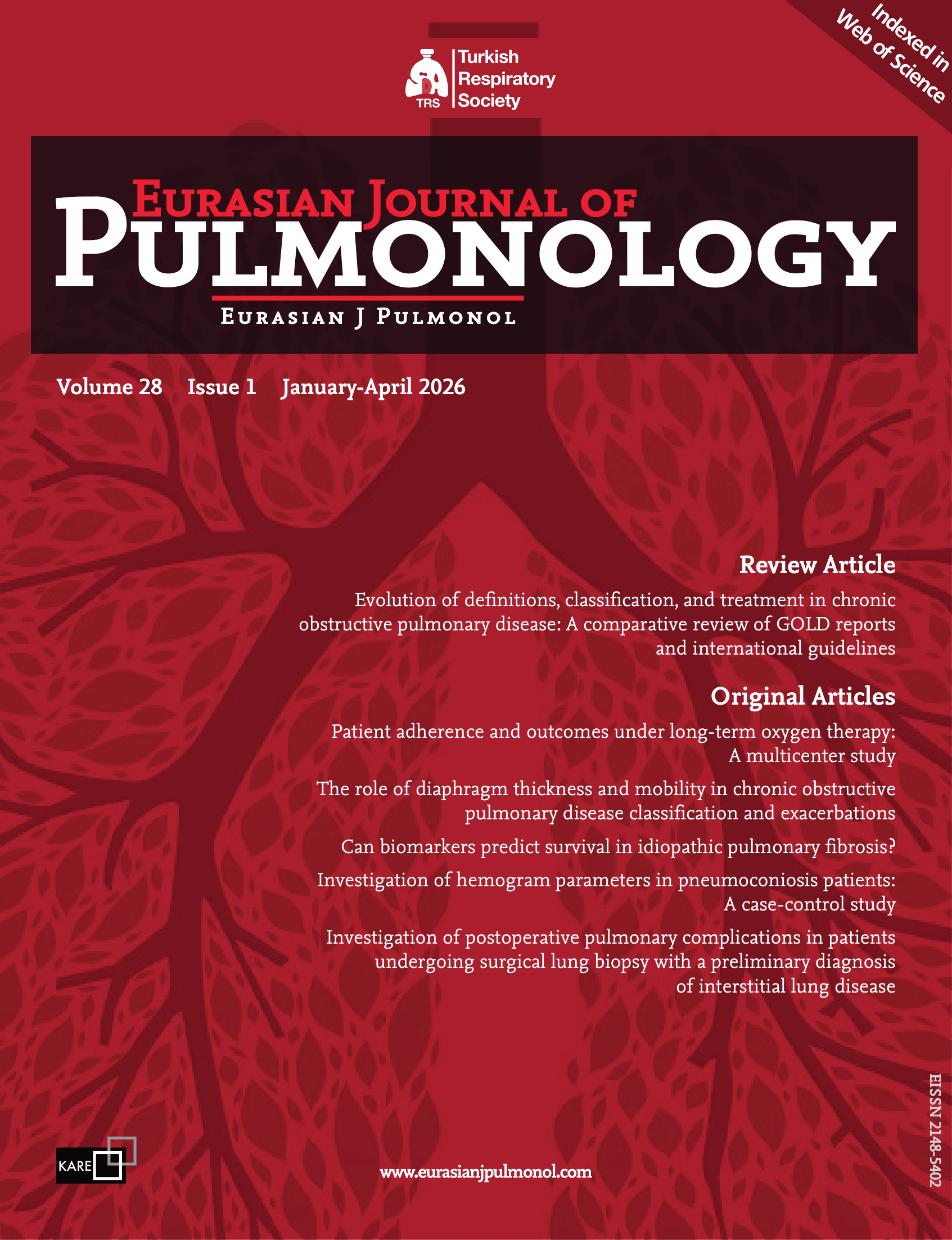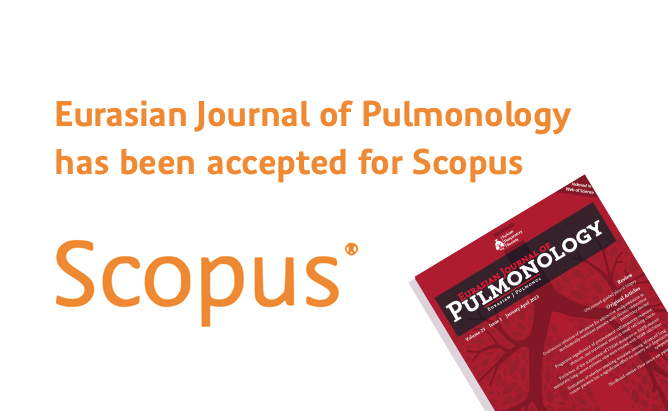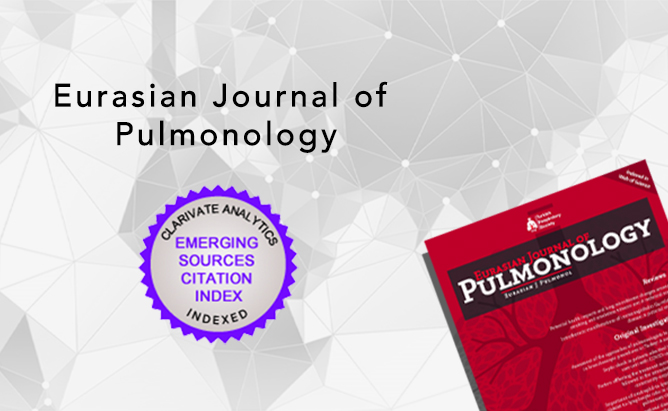2University of Health Sciences, Sureyyapasa Chest Diseases and Chest Surgery Training and Research Hospital,Department of Chest Diseases
Abstract
BACKGROUND AND AIM: The systemic inflammatory response plays a crucial role in the development and progression of many cancer types. In our study, we investigated the association of prognostic nutritional index (PNI) with progression-free survival (PFS) and overall survival (OS) in patients with non-small cell lung cancer (NSCLC).
METHODS: This was a retrospective cohort study. The data of patients who were followed up in the oncology clinic of our hospital between October 2011 and June 2014 were obtained from the hospital automation system records and patient files. A total of 240 patients with NSCLC diagnosis were included in the study, and their demographic and clinicopathological characteristics were recorded. PNI was calculated at the time of diagnosis based on albumin levels and lymphocyte counts.
RESULTS: In total, 231 patients were included in the study (205 [88.7%] men and 26 [11.3%] women), with a mean age of 59.97±9.44 years. We divided the patients into two groups, namely low (≤42.2) and high (>42.2) PNI groups, based on their median PNI values. The median OS of the low and high PNI groups were 380.00 (95% CI: 347.00–412.96) and 568.00 (95% CI: 515.52–620.48) days, respectively. The difference was statistically significant (p=0.009). Low PNI was associated with a poor OS, and the mortality rate of the low PNI group was 1.5 times higher than that of the high PNI group (hazard ratio: 1.50; 95% CI: 1.08–2.08). No statistically significant difference was observed between PNI values and PFS (p=0.328).
CONCLUSIONS: This study showed that PNI (≤42.2) at diagnosis is an independent biomarker of poor prognosis in patients with NSCLC. Therefore, PNI can be used as a biomarker of NSCLC prognosis because it is simple, inexpensive, and easily available.




 Feyyaz Kabadayı1
Feyyaz Kabadayı1 




